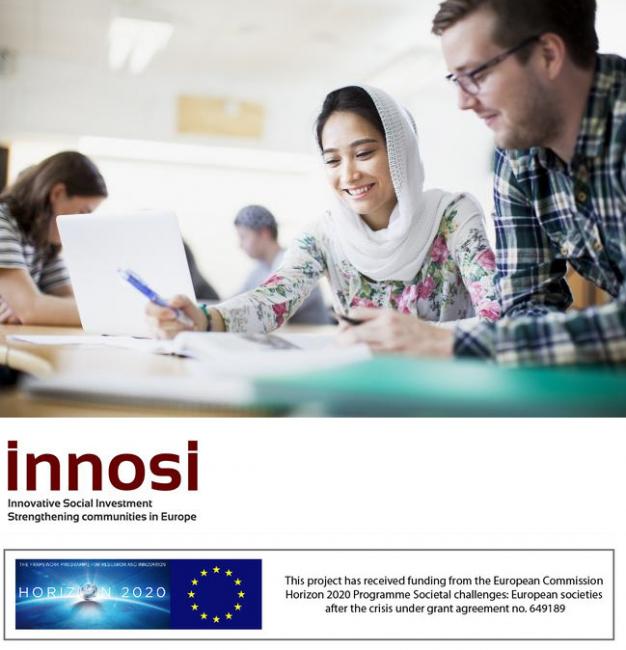The case for Social Investment
A case study on non-proft – public partnership for unaccompanied newcomer youngsters reception, establishment and integration in Gothenburg, Sweden. This case study is part of the European research project Innovative Social Investment (InnoSI) within the EURO-3-2014 ”European societies after the crisis”.

Unaccompanied newcomer minors and their needs not only of temporal shelter but also of worthy reception has increasingly been seen as a major policy challenge in Sweden especially due to major increase in the numbers of asylum seekers. In this case study we focus on an innovative in the Swedish context form of collaboration between public sector and voluntary organisations within the social sphere, the so-called idea-based–public partnerships (idéburna offentliga partnerskap, IPP). IPP are meant to create a long-term collaboration pattern between the two sectors especially on new societal challenges such as newcomer immigrant integration based on more equal or balanced relationships between the sectors. Indeed this form of partnership is seen as an alternative to collaboration via public procurement contracts and traditional grants to non-profits.
The case study explores a relatively new IPP partnership between Gothenburg city and initially seven but currently nine non-profit organisations for reception of unaccompanied newcomer minors. This is to our knowledge currently the largest local IPP collaboration partnership in Sweden. The social ambition of the partnership is qualitative unaccompanied minors’ reception and assistance in their integration. The partnership was signed in April 2015 and is valid from 1 may 2015 until 2021-04-30.
The aim of this evaluator study is both assess whether the Gothenburg partnership is heading the right direction towards addressing the targeted youngsters’ needs (relevance) and also whether this qualitatively new way is advantageous collaboration form for participating actors. We assess thus i) the relevance of the intervention strategies for the aimed goals and the targeted groups; ii) some of the current (partial) effects and iii) added value of the collaboration– especially for the individual participants, policy development and where possible the targeted groups– and processes behind.
The Gothenburg IPP partnership is especially interesting for its innovative organisational and financial arrangements between municipality and collaborating non-profit organisations. New is also that participating organisations develop collaborative relations, as some of them are competitors in the market of providing accommodation for asylum seekers. From the municipal perspective in Gothenburg this IPP is a new way to provide housing and services to unaccompanied children in collaboration and as a way to strengthen policy capacity. How does this work, with what effects or betterment so far for whom and how - are some of our questions.
Concluding Open Seminar
The results of the project as a whole and its thematic studies will take place at an Open Event in Leuven, just outside Brussels, on October 13. A number of guests are invited: the EU Commission with Marianne Thyssén, the Swedish Ministry of Health and Social Affairs, civilian societal organisations, partners of the project and other interested actors. Senior lecturer Inga Narbutaité Aflaki of Karlstad University will be facilitating the workshop on Social Economy.
Please see programme

